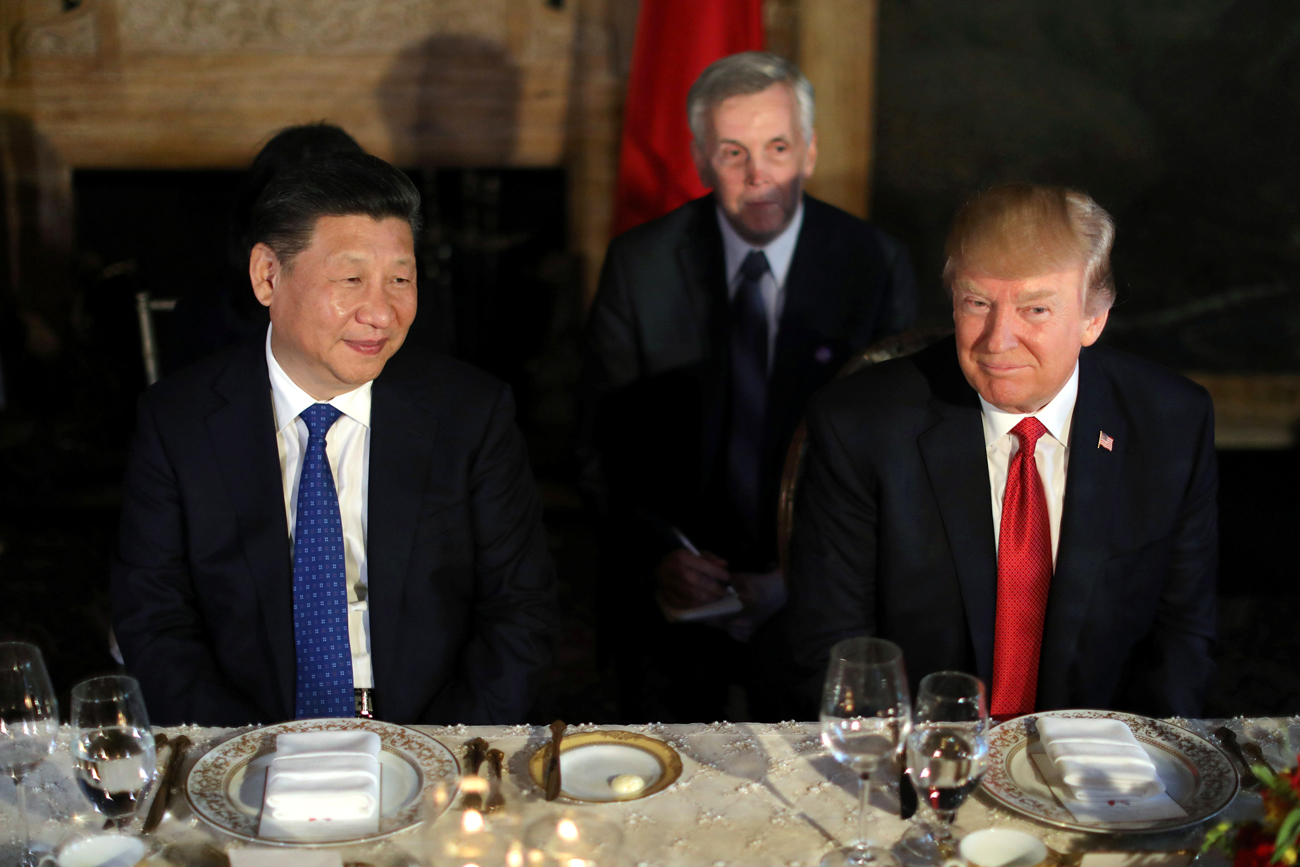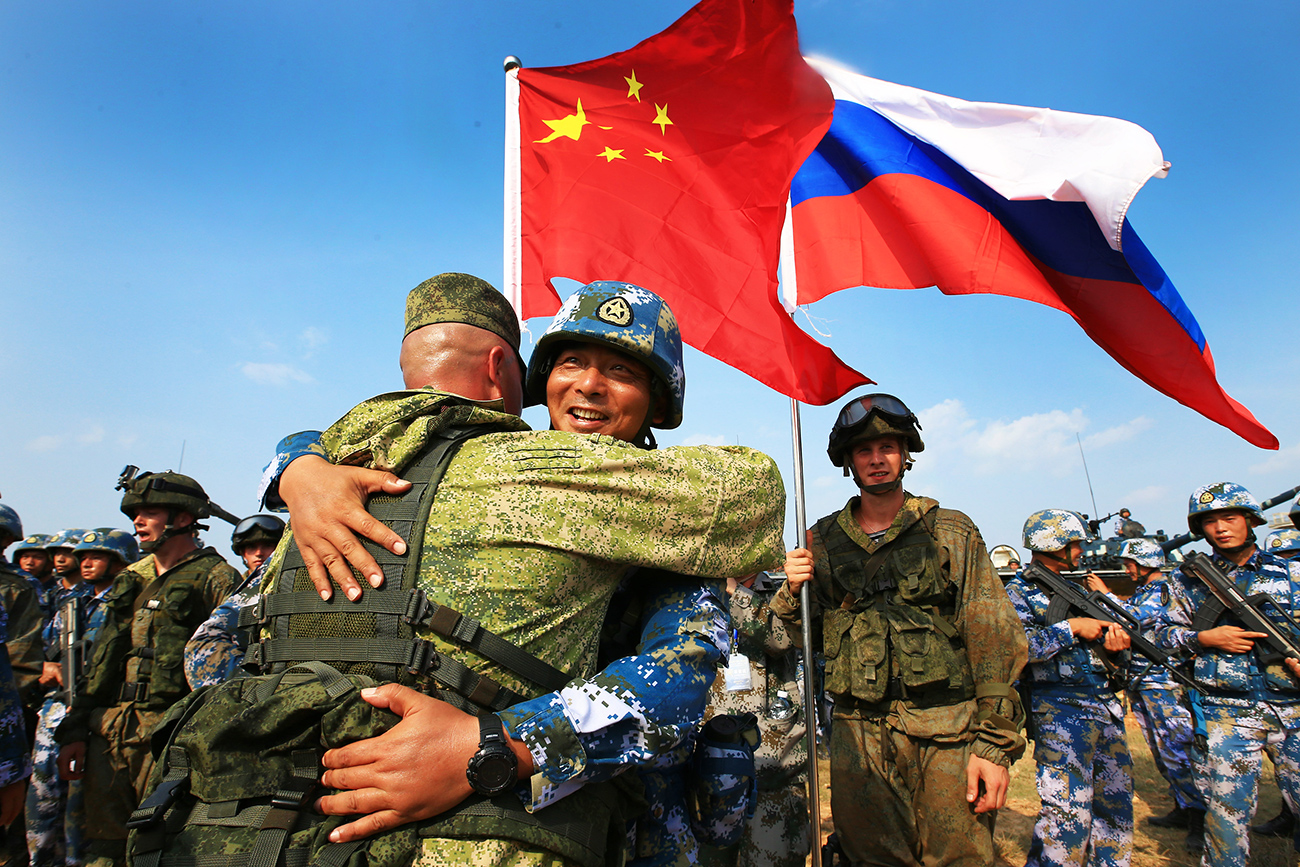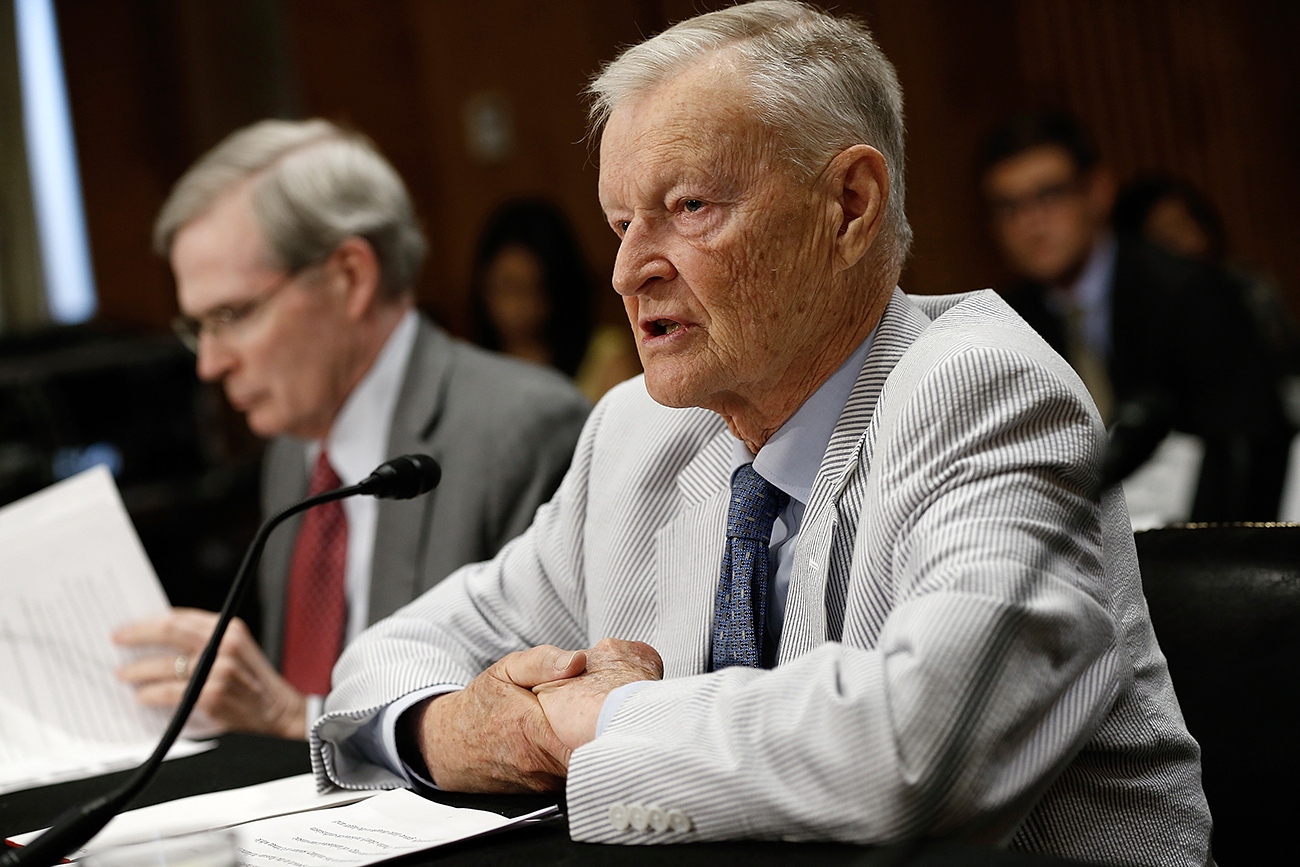Trump and Xi tandem could shape or ‘rape’ the world. But it won’t

Chinese President Xi Jinping and U.S. President Donald Trump attend a dinner at the start of their summit at Trump's Mar-a-Lago estate in West Palm Beach, Florida, U.S., April 6, 2017.
ReutersThe first ever meeting between Xi Jinping and Donald Trump on the U.S. president’s turf – at his beachside Mar-a-Lago estate in Florida – was duly regarded as a landmark chance to patch up old quarrels and stabilize relations between Washington and Beijing.
It was not easy going for the two leaders. Neither Trump, the distinguished China-basher during his 2016 election campaign, nor Xi – the grand admirer of globalization spearheaded by the U.S. – could afford to lose face.
Neither could be seen to be making concessions since they would immediately be put to task by their political opponents. This restraint prevented major breakthroughs.
Anyway, for Russia the mere fact that the Trump-Xi summit didn’t end up with smoking guns is good news.
The “limited functionality mode” that often occurs in word processors is applicable to global politics. Yet, in this case it’s a better scenario than the continuous gearing up for imminent war between the U.S. and China by 2050, as professed during the early 2000s by CIA analysts.
All in all, the Mar-a-Lago meeting diffused some tension although failed to banish the confrontational agenda. Tensions still exist, of course.
Limits to manoeuvre
Neither China, nor America is in the position to accommodate each other’s divergent views on a variety of global security issues. Trump's administration had signalled it was expecting Beijing to reign over Pyongyang and control its leader’s erratic behaviour.
North Korea keeps threatening its southern brethren, Japan, and the U.S. with nuclear weapons and missiles tests, and in this respect continues to be the region's chief trouble-maker. Nevertheless, to what extent China has the leverage (and desire) to influence its unpredictable but dependent neighbor is up for debate.
On foreign policy, both sides cannot cross certain red lines, claims Vadim Kozyulin, a senior research fellow at the PIR Center, a Moscow-based independent think tank:
“One might assume that Trump as a business person is prone to striking deals. True, but only to an extent. For instance, on the issue of disputed islands in the South China Sea neither Beijing, nor Washington can find an acceptable compromise.
“If the White House agrees to take a benign attitude, it would be torn apart by the conservative establishment of the U.S. Moreover, it would raise hell in Japan and probably in Vietnam. If President Xi, in turn, appears to be soft on the subject, he would face a backlash by his similarly conservative comrades at home.”
For the record – the U.S. Secretary of State, Rex W. Tillerson, has explicitly stated that the U.S. should “send China a clear signal that, first, the island-building stops. And second, access to those islands is also not going to be allowed.”
However, since then the rhetoric coming out of Washington has conspicuously softened. Still, was this divergence spelling an automatic failure even before the beginning of the summit?
“Not necessarily. For various reasons, China and the U.S. need to assuage fears at home that bilateral relations are getting out of hand,” Kozyulin says. “China is dependent on trade and economic interaction with the United States now more than ever. The Chinese economy is slowing. Last year, the GDP growth was around 6.8 percent estimated in Yuan but only one percent calculated in the U.S. dollars.”
And yet, Washington’s unprovoked assault on Syria as a sovereign state alarmed China. Since Trump has joined, at least for the moment, the Bush-Clinton-Kagan party of war, the chances that the U.S. president – embattled on the domestic front – might use military force in international affairs, including the possible escalation of tensions from eyeball-to-eyeball in the South China Sea, skyrocketed.
Advocate of globalization vs. champion of protectionism
A fine-tuned compromise to be reached in Florida between Trump and Xi on curtailing the free flow of goods, services, and investment in the spirit of ‘globalization’ – which has resulted in a number of American businesses defecting to China with its low-cost production base – was hardly feasible.
America’s enormous trade deficit with China (around $350 billion in 2016) was played up by Trump during the election trail in tune with his overall strategy of pinpointing external enemies who allegedly – in sync with the bloated “deep state” run by unhinged liberals – pose a threat to the security and well-being of the American people.
Trump said this, without naming China per se: “We must protect our borders from the ravages of other countries making our products, stealing our companies, and destroying our jobs.” Rather more brashly and in his typical abrasive style, Trump claimed China “raped” the U.S. economy.
Apparently, the U.S. president was appealing to the “gallery,” to America’s manufacturing industry that suffered the most from the unexpected calamities of globalization. No doubt, moving production capacities to China led to a modest deindustrialization of the United States.
Trump’s response to the challenges of enhanced competition on the global markets has been conservative, paternalistic, and egoistic. He’s opted for protectionism as the only answer. “We will follow two simple rules: Buy American and hire American,” he said. The strategic goals were defined as decreasing trade deficit and “strengthening the U.S. manufacturing base.”
It was in weird contrast with President’s Xi ardent advocacy of the merits of globalization in his speech to the World Economic Forum in Davos this year. “Blaming economic globalization for the world’s problems is inconsistent with reality,” Xi argued.
Despite a lot of huffing and puffing, President Trump avoided rash punitive actions. In fact, he did not label China a “currency manipulator” on day one of his presidency, as he had promised.
Similarly, he did not impose a 45 percent tariff on imported Chinese goods for an understandable fear of triggering an all-out trade shoot-out with incalculable ramifications for both sides. So far, the trade war has been averted, or at least postponed.
Moscow has a stake in U.S.-China equilibrium
Should the U.S.-China hostilities break out on the global markets, Russia would be the first to bear the burden of Beijing’s decreased demand for its energy supplies and primary materials. The damages would be huge, lasting, and multi-faceted.
Fortunately, Trump does not come out with all guns blazing and ready to shoot from the hip – on trade disputes. This is a consolation for Moscow, who bets on preserving relative stability along its borders for as long as possible to keep “putting its house into order.”
Given the deeply rooted discrepancy of long-term national interests between the U.S. and China, it would be foolish for Moscow strategists to assume that the spectre of the so-called “Ping-Pong diplomacy” of 1971 could materialize once again. Today, the two superpowers acting in tandem could hardly strike a shady deal at the expense of Russia.
Besides, playing golf was not on the program as the hosts were well aware: In China, Chairman Xi condemned this time-consuming indulgence by the Communist bosses as inappropriate. So, in Florida no “golf diplomacy” was in the offering.
Moscow has nothing to lose and would only gain from a workable and sustainable relationship between Trump and Xi. Their first encounter in Florida has produced a sort of a “time out” for the partners-cum-adversaries, which objectively benefits Russia.
Moscow would not like to see the uncasing of the big cannons on both sides of the Pacific. Maintaining Beijing-Washington equilibrium focused on positive engagement is a safe bet for Russia.
In theory, a Trump-Xi tandem could shape or “rape” the world. But it won’t. Not now, at least. The consequences of the U.S. involvement in the Syrian quagmire on the side of Bashar al-Assad’s paramilitary opposition, which alleviates pressure also on ISIS and other jihadist groupings in the region, will be duly assessed by Beijing and Moscow.
If Trump pursues his foreign policy agenda (“regime change” and cleansing the world of anti-Western regimes) determined by the neocons, which was not fully implemented under the presidency of George W. Bush and the Obama-Clinton administrations, then China and Russia will move up a level in forging a tighter alliance to prevent the world spinning out of control.
Vladimir Mikheev is a freelance commentator for Russia Beyond The Headlines. His opinion does not reflect the position of RBTH or its staff.
If using any of Russia Beyond's content, partly or in full, always provide an active hyperlink to the original material.
Subscribe
to our newsletter!
Get the week's best stories straight to your inbox

